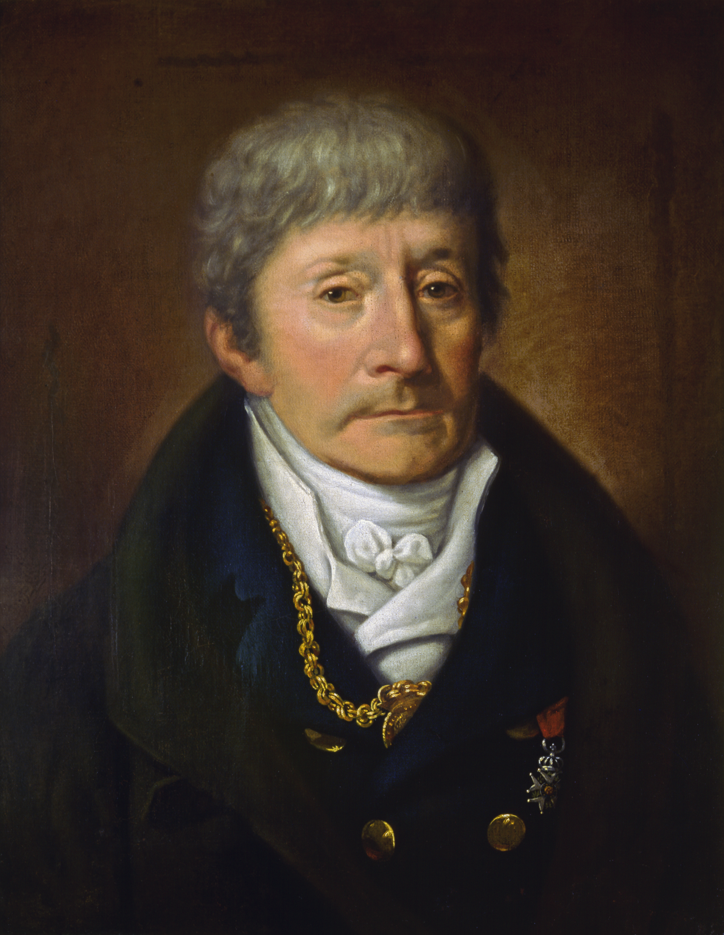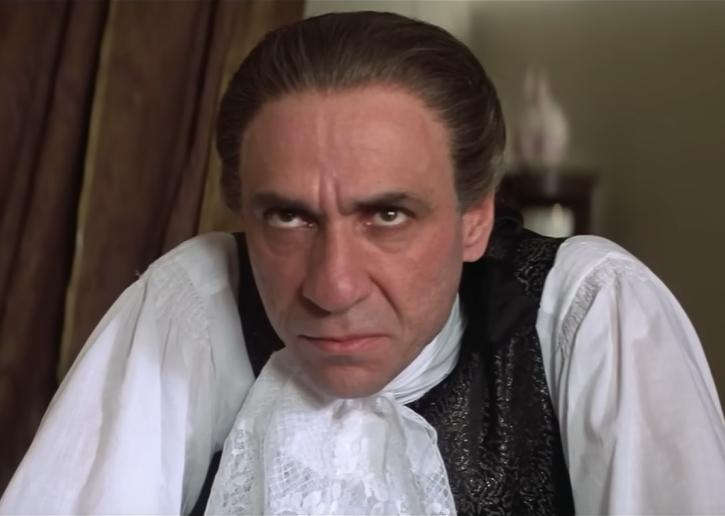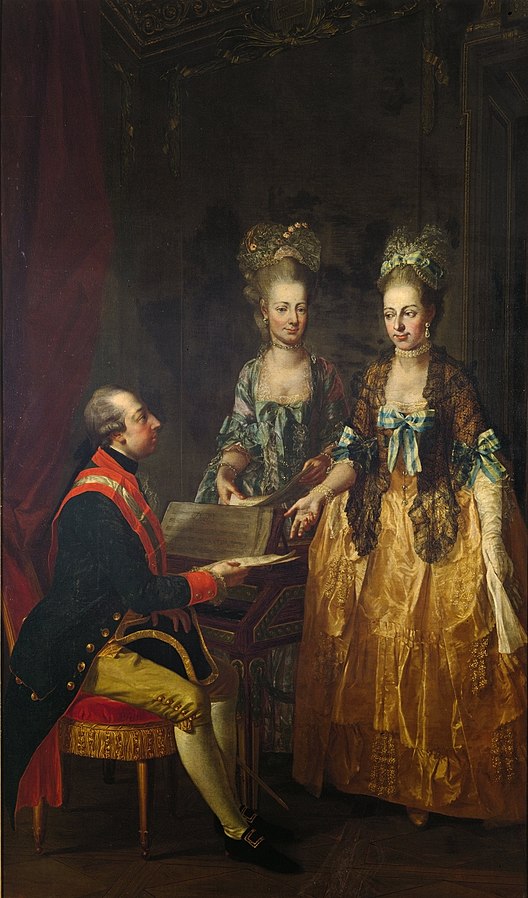
Beyond the Notes presents
Beethoven in Vienna
Wednesday, February 8, 2023, 12:00 PM
Charles Library Event Space
Performers:
Mădălina-Claudia Dănila, piano
Sendi Vartanova, violin
Taiysia Losmakova, violin
Program:
Sonata for piano op. 2 no. 1 in F minor (1795):
dedicated to Joseph Haydn
Sonata for piano and violin op.12 no. 3 in E flat major (1798):
dedicated to Antonio Salieri:
Sonata for piano and violin op. 30 no. 2 in C minor (1802):
dedicated to Tsar Alexander I of Russia
Light refreshments served. Boyer recital credit given.
All programs are free and open to all, and registration is encouraged.
This program will also be live streamed via Zoom Webinar. Access the live stream here: https://temple.zoom.us/j/94892166610
The Academy-Award winning film Amadeus (1984, dir. Milos Forman) is nearly 40 years old, but even in 2023 its influence on our knowledge and reception of Antonio Salieri is powerful. Portrayed by F. Murray Abraham, who has rocketed back into the public eye through his Golden Globe-nominated performance in season two of The White Lotus, Salieri comes across as bitter, arrogant, spiteful, and ultimately, in his own words, a “champion of mediocrity.”

Notwithstanding Abraham’s masterful and entertaining performance in the Oscar-winning role, the real Salieri bore little resemblance to this tragi-comic figure. Scholars agree that while Mozart and Salieri were hardly the best of friends, and Mozart frequently complained of conspiracies against him that may have been real and that may or may not have involved Salieri, the composers maintained a professional relationship until the younger man’s death. While Salieri did not always appreciate his colleague’s work, towards the end he seems to have developed an admiration for Mozart’s music. He was one of the few to attend his funeral, in spite of persistent rumors that he had poisoned Mozart. Nonetheless, these rumors were not taken seriously by those who had known Salieri, including a younger composer who was soon to burst onto the Viennese music scene: Ludwig van Beethoven.
Born in 1750 in the Veneto region of Italy, the young Salieri studied violin and keyboard as a child. Orphaned by the age of 15, he was discovered by the eminent composer Florian Leopold Gassmann, who realized the depth of the boy’s talent and brought him to Vienna. This early kindness from an older composer seems to have instilled in Salieri a desire to foster talent in younger artists, and once established himself he became known for his willingness to take on pupils for little or no pay. Through Gassmann he became acquainted with important composers such as Christoph Willibald Gluck, librettists like Pietro Metastasio, and most importantly, his future patron Emperor Joseph II. He took on several appointments in Vienna, but gained much of his success as an operatic composer abroad, particularly in Italy and France. In 1788 Salieri was appointed Hofkapellmeister, a position he held for the rest of his life.

Some disagreement exists regarding when exactly Beethoven studied under Salieri, with some evidence suggesting that as early as 1793 the young German may have already been taking lessons in vocal writing while still a student of Haydn, his main reason for moving to Vienna. Salieri had recently fallen out of favor in court after the death of Joseph II and had lost all of his posts apart from that of Hofkapellmeister, but he remained a respected and revered composer known particularly for his operas. Beethoven, who lacked training in text setting, turned to Salieri at some point during his time in Vienna, if not in 1793 then certainly within the next few years.
Popular wisdom would have us believe that Beethoven was an obstinate, arrogant student who lacked respect for his teachers–his later student Ferdinand Ries claimed the Beethoven asserted never to have learned anything from Haydn, and others reported that he took lessons behind his famous teacher’s back. But why then would Beethoven have sought out teachers, some of whom he probably had to pay out of pocket, and for such an extended period of time? “Why,” asks Julia Ronge in an article about Beethoven’s apprenticeships, “would Beethoven, as an already established composer, seek instruction from a teacher if the role of student was so disagreeable to him?”[1]
We know little of Beethoven’s relationship with Salieri, but we know that in 1795 Beethoven played at one of his teacher’s benefit concerts, and in 1799 he wrote a set of variations on a duet from Salieri’s most recent opera, Falstaff. It was around this time that he dedicated his Op. 12 violin sonatas to Salieri. But later their relationship appears to have cooled, if it can ever be said to have been warm. Beethoven seems to have believed that Salieri tried to sabotage one of the most important concerts of his career—the 1808 Akademie concert at which he premiered his Fifth and Sixth Symphonies—by scheduling a charity concert on the same date. On the contrary, it is more likely that Beethoven scheduled his concert at the same time as Salieri’s, but nevertheless he called his former teacher “my most active opponent, [who] played me a horrible trick.”[2] Nevertheless, the two composers were still capable of working together as colleagues, as when Salieri conducted the offstage ensemble in an 1813 performance of Wellington’s Victory.
We are left to wonder at the meaning of a note Ignaz Moscheles reportedly found on his teacher’s desk when the up-and-coming composer was studying with Salieri sometime after 1808: “Der Schuler Beethoven war da!” (“The pupil Beethoven was here!”) Could Salieri possibly have been in awe of his former student? Was his note dripping with sarcasm—Beethoven, after all, had not been Salieri’s “pupil” (Schuler) for some time. Or was this merely a neutral reminder that his former pupil had stopped by? We will never know, but it is tempting to hope that perhaps underneath the animosity between them, that affection that may have once existed when Beethoven dedicated his Op. 12 sonatas to Salieri still remained.
[1] Ronge, “Beethoven’s Apprenticeship: Studies with Haydn, Albrechtsberger, and Salieri,” 78.
[2] Anderson, The Letters of Beethoven: no. 192.
References:
Albrecht, Theodore. “Beethoven’s Tribute to Antonio Salieri in the Rondo of His Fortepiano Concerto in C Major, Opus 15 (and Beethoven’s Hand-Copied Excerpts from Les Danaïdes).” The Beethoven Journal 22, no. 1 (June 2007): 6–16.
Anderson, Emily, ed. The Letters of Beethoven. 3 vols. London: Macmillan, 1961.
Beahrs, Virginia Oakley. “Antonio Salieri: Demon or Demigod?” The Music Review 51, no. 4 (November 1990): 268–79.
Bergquist, Stephen A. “Some Portraits of Beethoven and His Contemporaries.” Music in Art: International Journal for Music Iconography 37, no. 1–2 (2012): 207–31.
Caeyers, Jan. “Salieri’s Opera Lessons.” In Beethoven, A Life, 213–16. Berkeley: University of California Press, 2021.
Gibbs, Christopher H. “Writing Under the Influence? Salieri and Schubert’s Early Opinion of Beethoven.” Current Musicology (March 2003): 117–44.
Hettrick, Jane Schatkin. “Antonio Salieri’s De Profundis: Rediscovering a Gem.” Sacred Music, January 2016.
Hettrick, Jane Schatkin, and John A. Rice. “Salieri, Antonio.” In Grove Music Online. Oxford University Press, 2001.
Ronge, Julia. “Beethoven’s Apprenticeship: Studies with Haydn, Albrechtsberger, and Salieri.” Edited by William Kinderman. Journal of Musicological Research 32 (April 2013): 73–82.
Ross, Alex. “Salieri’s Revenge.” The New Yorker, June 3, 2019.